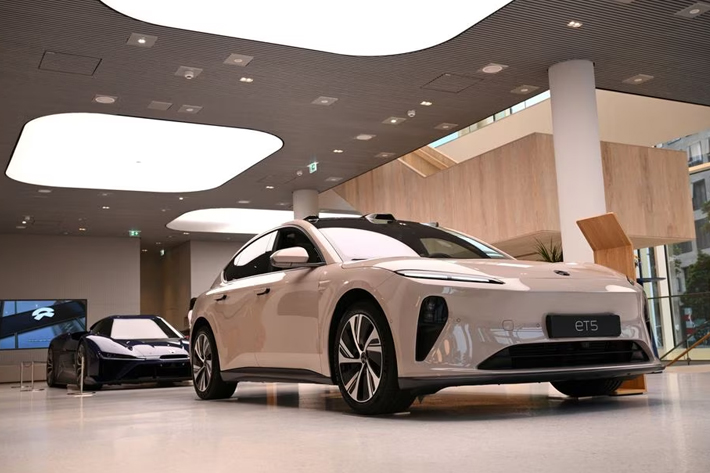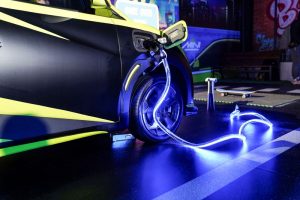China’s electric vehicle maker Nio and battery giant CATL joined hands on Thursday to develop EV batteries with longer lifespans.
Both firms will leverage their technologies to lower the so-called “full life circle” costs of batteries and lower overall EV costs.
Those batteries will also be key for the operating costs of Nio’s thousands of battery swapping and charging stations, William Li, Nio’s founder and CEO, told reporters in Beijing.
Also on AF: Tesla Eyes Southeast Asia’s EV Boom But Faces China Challenge
Li said the goal was to extend battery usage beyond eight or 10 years.
Nio also announced a cut to monthly rental fees for batteries by up to 33% for Nio users, which works to lower EV purchase costs by as much as 128,000 yuan ($17,795.82).
After receiving more than $3 billion from Abu Dhabi investor CYVN Holdings last year, Nio has strived to turn profitable sooner by trimming its workforce and deferring long-term investments to improve efficiency.
The company, however, said it would still keep investing in developing core technologies such as batteries on its own. It has commercialised 150 kilowatt hour (kWh) semi-solid-state batteries for its EVs, manufactured by Beijing Welion New Energy, which have a range of up to 1,000 km (620 miles).
Nio has also invested heavily in infrastructures for battery charging and swapping. It currently has 2,382 battery swapping stations and 21,652 public charging stations, according to Li, adding that the charging has turned profitable for Nio while it’s still losing money for the battery swapping services.
Swapping could help to ease the strain on power grids at peak times when drivers recharge, but industry analysts and executives expect it will only become feasible if batteries become more standardised.
While some have criticised battery swapping stations as a costly investment, Nio argues they can be both a quicker solution to powering up EVs and an energy storage facility to improve grid stability.
Nio currently buys most of its batteries from CATL and has been exploring battery supplies from new partners such as CALB.
- Reuters, with additional editing by Vishakha Saxena
Also read:
China’s CATL Unveils Game-Changing Fast-Charging LFP Battery
US Utility to Drop Storage Batteries from Chinese Supplier CATL
China’s Nio Unveils Flagship EV to Take on Mercedes, Porsche
China’s Nio Signs Geely Up to Auto Battery Swapping Push
Chinese EV ‘Invasion’ Forces Western Rivals to Slash Costs
























